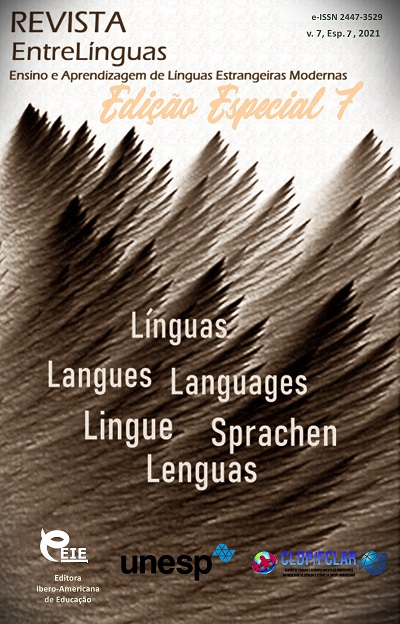Teaching a second language with a philosophical approach to pragmatism and idealism
DOI:
https://doi.org/10.29051/el.v7iesp.7.16286Keywords:
Language learning, Education, Literacy, English knowledgeAbstract
Language learning has long been one of the main principles of education, so that today in the international community, one of the hallmarks of literacy is English knowledge. Therefore, many methods for teaching and learning foreign languages have been introduced. In the meantime, to find a suitable solution, it is necessary to examine some of the philosophical views that have been spoken in the field of education. In this study, attempts have been made to study the views of pragmatism and idealism in language teaching. The thought of pragmatism is based on experience, and the view of idealism is based on the acquisition of knowledge through dialectics. However, using both perspectives can help teach a foreign language, but some of the points raised by both perspectives should also be modified or omitted. This research has been done using the descriptive-analytical method, and different literature in this field has been used.
Downloads
References
Baghdasaryan, V.E. (2014). Cosmopolitanism as a factor of the state sovereignty of Russia. The problem of the sovereignty of modern Russia: materials of the All-Russian scientific and public conference (pp. 27-29). Moscow, Russia: Science and politics.
Belov, P.G. (2014). On the criteria for assessing and ensuring state sovereignty. The problem of the sovereignty of modern Russia: materials of the All-Russian scientific and public conference (pp. 75-80). Moscow, Russia: Science and politics.
Mileshkin, T.S. (2007). Political and legal protection mechanisms for the sovereignty of Russia: PhD Thesis. Rostov-on-Don: Rostov Law Institute of the Ministry of Internal Affairs of Russia.
Oleinikov, A.A. (2014). Spiritual, moral and ideological foundations of the sovereignty of Russian national economy. The problem of the sovereignty of modern Russia: materials of the All-Russian scientific and public conference (pp. 60-75). Moscow, Russia: Science and Politics.
Palienko, N.I. (1903). Sovereignty. Historical development of the sovereignty idea and its legal significance. Yaroslavl, Russia: Gubernskaya pravochnaya tipografiya.
Rudakova, E.K. (2020). Demographic processes in Europe: dynamics and causes of depopulation. Power, 28(4), 227-234.
Sulashkin, S.S. (2014). Category, structure of state sovereignty and condition of Russia. The problem of the sovereignty of modern Russia: materials of the All-Russian scientific and public conference (pp. 7-9). Moscow, Russia: Science and Politics.
The Concept. (2014). The Concept of Family Policy until 2025. URL: https://rg.ru/2014/08/29/semya-site-dok.html.
Tivodar, S.I. (2007). Legal legitimation of the demographic sovereignty of Russia. Lawyer-Jurist, 5(24), 38-41.
Tonkonogov, A.V. (2019). Limited sovereignty of the Russian Federation as a pseudo-state. Law and Justice, 2, 25-27.
Vengerov, A.B. (2005). Theory of the State and Law. Moscow, Russia: Omega-L.
Downloads
Published
How to Cite
Issue
Section
License

This work is licensed under a Creative Commons Attribution-NonCommercial-ShareAlike 4.0 International License.
Os manuscritos aceitos e publicados são de propriedade da Revista EntreLínguas. Os artigos publicados e as referências citadas na Revista EntreLínguas são de inteira responsabilidade de seus autores.
Transferência de direitos autorais – autorização para publicação
Caso o artigo submetido seja aprovado para publicação, já fica acordado que o(s) autor(es) autoriza(m) a UNESP a reproduzi-lo e publicá-lo na EntreLínguas, entendendo-se os termos “reprodução” e “publicação” conforme definição respectivamente dos incisos VI e I do artigo 5° da Lei 9610/98. O artigo poderá ser acessado pela rede mundial de computadores (Internet), sendo permitidas, a título gratuito, a consulta e a reprodução de exemplar do artigo para uso próprio de quem a consulta, desde que haja a citação ao texto consultado. Essa autorização de publicação 328 EntreLínguas, Araraquara, v. 1, n .2, p. 323-328, jul./dez. 2015 não tem limitação de tempo, ficando a UNESP responsável pela manutenção da identificação do(s) autor(es) do artigo. Os artigos publicados e as referências citadas na Revista EntreLínguas são de inteira responsabilidade de seus autores.











